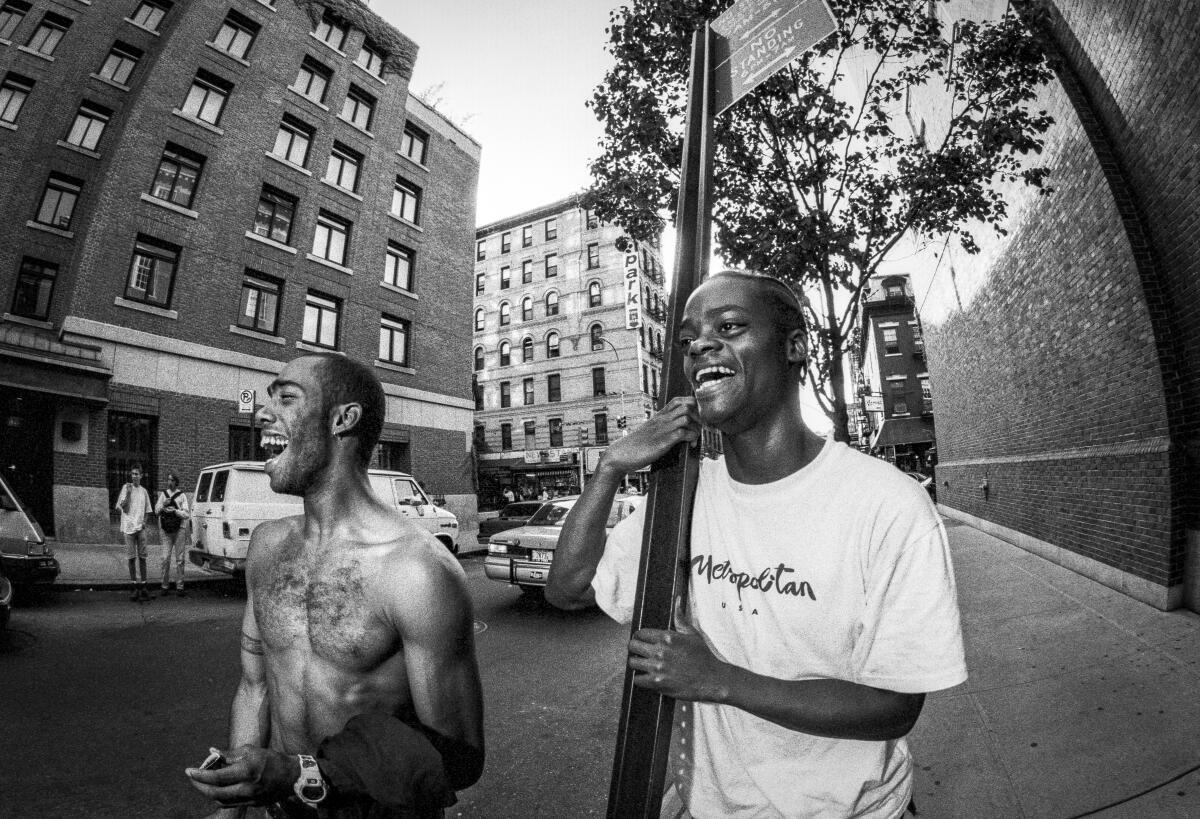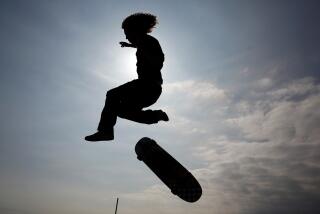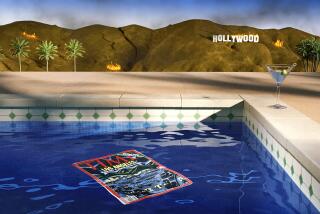Review: ‘All the Streets Are Silent’ tries to say too much in too little time

The Los Angeles Times is committed to reviewing new theatrical film releases during the COVID-19 pandemic. Because moviegoing carries inherent risks during this time, we remind readers to follow health and safety guidelines as outlined by the CDC and local health officials. We will continue to note the various ways readers can see each new film, including drive-in theaters in the Southland and VOD/streaming options when available.
A new documentary depicts the late-’80s/early-’90s New York scene through which several eventual pro skateboarders and some soon-to-be giant hip-hop stars passed. It works as a snapshot of a place and time but, as its mouthful of a title implies, “All the Streets Are Silent: The Convergence of Hip-Hop and Skateboarding (1987-1997)” tries to cram too much into too little space.
“All the Streets” is clearly a labor of love, its cinematic foundation being the countless hours of grainy contemporaneous video shot by one of its subjects, skateboard-culture figure Eli Gesner. There’s footage of guys on busy streets pulling the kind of skate tricks that infuriate drivers, including some close calls that may inspire gasps. There’s also stunning footage of superstar rappers Jay-Z, Method Man and Busta Rhymes at the earliest stages of their careers. The film describes the importance of one nightclub (Club Mars) and what became an iconic radio show in uniting kids across severely polarized racial lines. As one interviewee says, “Hip-hop was a Black thing and skateboarding was a white thing” — but Gesner and his white and Black friends were there to see it all mix together.
Unfortunately, as one might expect from having so much footage with so much sentimental value to those involved (Gesner narrates), the filmmakers try to cover too many aspects, and too many people, in about 90 minutes. We hear from many subjects, including actress Rosario Dawson, how positive and creative Harold Hunter was (the skater who, like Dawson, found fame when plucked from the streets to star in the film “Kids”) but never see actual evidence of that — then he’s dead and the movie trucks right by. It can’t pause, with so much ground to cover.
“All the Streets” feels niche to a fault. Some major businesses were launched from that platform and massive careers were adjacent to it. But names and faces fly by that may carry significance to those familiar with the scene, while those outside it will lose track pretty quickly of who said what or what a given person did. Those who lived in New York City around that time will be taken back to those often bad old days — there’s much mention of the violence, drugs and other dangers of the era — but the film’s thesis likely will remain unclear to most.
'All the Streets Are Silent: The Convergence of Hip-Hop and Skateboarding (1987-1997)"
Rating: Unrated
Running time: 1 hour, 29 minutes
Playing: July 30 at the Laemmle Glendale July 30; Aug. 6 at other Laemmle theaters throughout the Los Angeles area
More to Read
Only good movies
Get the Indie Focus newsletter, Mark Olsen's weekly guide to the world of cinema.
You may occasionally receive promotional content from the Los Angeles Times.











